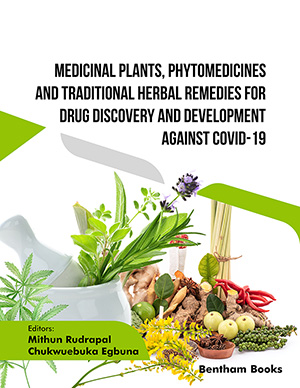Abstract
Parkinson's disease (PD) is the second most common neurodegenerative disorder. It is characterized by the depletion of striatal dopamine content and aggregation of alphasynuclein in the substantia nigra (SN). It is possible to treat the symptoms of PD with a variety of medications, but they often result in complications and are not able to cure or stop the progression of the disease. Flavonoids (the phytocomponents present in almost all fruits and vegetables) are the class of secondary metabolites that have generated a peak of interest because of their medicinal properties, including a reduction in the risk of PD. Several flavonoids such as quercetin, kaempferol, hesperitin, anthocyanin and many more have been reported for their anti- Parkinson’s effect. This review deals with the neuroprotective benefits of different classes of flavonoids against PD
Keywords: Parkinson's disease, flavonoids, oxidative stress, neurodegenerative disorders, synuclein, dopamine.




























